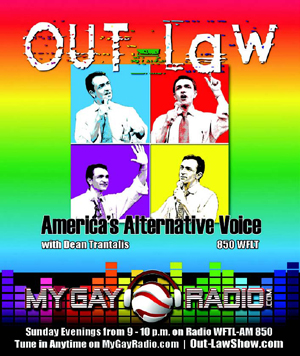
By Sam Knew, MSW
It has been nearly 40 years since the American Psychiatric Association (APA) removed homosexuality from its official Diagnostic and Statistical Manual of Mental Disorders (DSM). Yet the question still lingers in the minds of some, “Is being gay a disorder?” It is a question some members of the gay, lesbian, bisexual, transgender, and questioning (GLBTQ) community have even asked themselves at some point. But is it possible that being gay is making us crazy? Incredibly enough, our own hang-ups about our sexuality may actually be driving us to the edge.
Studies have found that many members of the GLBTQ community are at a higher risk of disorders such as anxiety, substance abuse, and suicide. In fact, GLBTQ individuals are six times more likely to attempt suicide. However, it should be noted that the majority of GLBTQ individuals never attempt suicide. Rates are higher however with individuals who have more trouble
fitting into both the GLBTQ community and straight community. For example, one study showed 83% of transgender
people had considered suicide, and 54% had actually attempted it. Complicating matters more, those who have attempted to take their life may also be suffering from one or more other mental health disorders, including anxiety and depression. Not surprising, how one struggles to understand and accept their sexual identity plays a large role in their mental health.
So how exactly do all these negative thoughts and feelings lead to depression? Well in short, neurotransmitters, a chemical in the brain, relay a series of specialized messages among brain cells. Levels of norepinephrine or serotonin (types of neurotransmitters) affect a person’s mood. For example, increased levels could stimulate feelings of motivation or self-confidence. But as far as
science can tell, it is still a chicken and egg theory. Is it the chemical imbalance that causes depression, or vice versa? Either way, it is known that individuals suffering from depression have this chemical imbalance – and GLBTQ individuals are six times more at risk of being clinical depressed.
One way many of these feelings of depression and anxiety can manifest themselves is through substance use and abuse. Although there are an array of substances abused by members of the GLBTQ population, alcohol and crystal methamphetamine seem to be the two most common – more so among gay men. And although these substances, among others are commonly abused throughout most communities, it seems in the GLBTQ community alcohol consumption rates do not decrease over time as with most. Additionally, multiple studies report nearly one-third of all homosexuals will struggle with substance abuse as means of coping with acceptance.
Gay men are also at an increased risk of developing other disorders. Eating disorders, such as anorexia (self-starvation), bulimia (purging), compulsive overeating and binging can become life threatening. Much of the time these kinds of disorders revolve around issues of self-worth and control. These forms of compulsive disorders can take other various forms of obsessive-compulsive disorders (OCD). OCDs can manifest in various forms, from obsessive fears of contracting infections to compulsively repeating rituals, such as hand washing.
Perhaps it’s the unique stressors many members of the GLBTQ community undergo – as early as pre-adolescence that place us at higher risk. From our fears and struggles of self-acceptance to social-acceptance, our thoughts and experiences shape us into the people we are – for better or worse.
Sam Knew, MSW is an educator and a local counselor. He can be reached at samknewmsw@gmail.com





